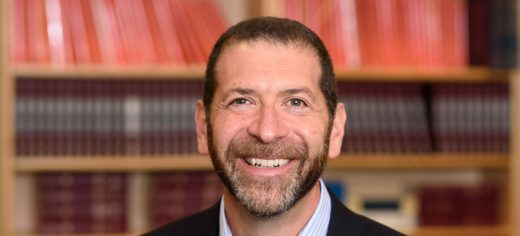I have to get this off my chest: every time I lead services I announce to everyone that there is no God. It’s true, and you simply have to show up to any morning minyan or Shabbat service and you’ll hear me say it loud and clear. Somehow I haven’t gotten into any trouble yet.
Standing at my podium, I clearly chant the words Ein Elohim–“There is no God.”
OK, so maybe a few insiders can see where I’m going with this. While I do in fact pronounce those words each time, I also include the final word, Zulatecha, which then renders the meaning to be “There is no God but You.” Yes, that does sort of change things a bit.
Nice that I got your attention though.
But this facetious example helps illustrate a significant aspect of how we must approach our sacred texts and seek to interpret and understand them. An important section of the Rosh Hashanah morning service is entitled Shofarot, which despite using the well known word shofar is commonly translated as “Revelation.” The sound of the shofar blast and the concept of God’s revelation are inextricably linked.
I’ve always considered the Torah to be the result of a cosmic game of telephone. And this in no way takes away from the sanctity with which we treat the text. But somewhere, sometime–by someone–these words were spoken. And repeated. Each successive person who heard them then had to repeat them for the next person. Only after many iterations of this process were actual words written down, but at that point who knows how many phrases were left out, how many words were changed or added? If generations of people heard the phrase Ein Elohim Zulatecha and could only communicate it orally over the course of centuries, isn’t it possible that at some point, a vital word might get dropped?
In just a couple of weeks, we will read a well known verse in the Torah:
הַנִּ֨סְתָּרֹ֔ת לַֽיהוָֹ֖ה אֱלֹהֵ֑ינוּ וְהַנִּגְלֹ֞ת לָ֤נוּ וּלְבָנֵ֨ינוּ֙ עַד־עוֹלָ֔ם לַֽעֲשׂ֕וֹת אֶת־כָּל־דִּבְרֵ֖י הַתּוֹרָ֥ה הַזֹּֽאת
That which is secret belongs to God, but things that are revealed are for us and our children throughout all time.
In other words, interpreting and re-interpreting the text, re-shaping the meaning of what we read and how it applies to us today–that doesn’t reflect the slippery slope of lazy Jews who don’t feel like they want to observe certain laws. Instead, it’s our responsibility. We are required to treat the words of Torah and halacha (Jewish law) as organic–living, breathing, and changing with each generation. When Solomon Schechter founded the Jewish Theological Seminary and what was to become the Conservative Movement, do you think he could ever have envisioned the ordination of female rabbis and officiating at same sex marriage ceremonies? The ongoing process of revelation allowed for these milestones to happen. And indeed, the word used in this verse–Niglot–is the same one we find in the Rosh Hashanah Shofarot section: we hear the shofar and we are called not to remember, but to move. To innovate. To adapt.
Put another way, the Torah is revealed to us each day just as it was for Moses on Mount Sinai. We have just as much right to make its meaning relevant for us as did Moses and the ancient Israelites.
Otherwise, we run the risk of becoming nothing more than passive and disinterested bystanders to whom the tradition has no actual significance. Hearing me chant Ein Elohim will resonate as much as Ein Elohim Zulatecha–because we will have stopped really paying much attention to any real meaning.


0 comments on “A Game of Telephone”